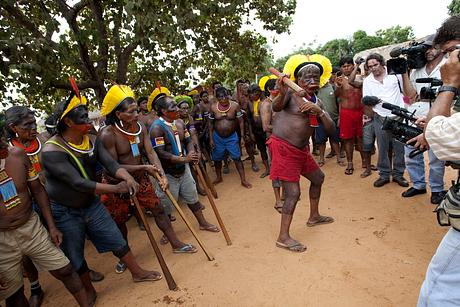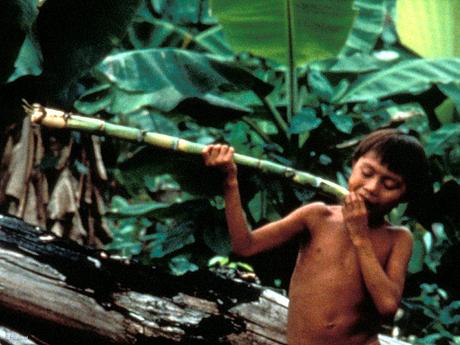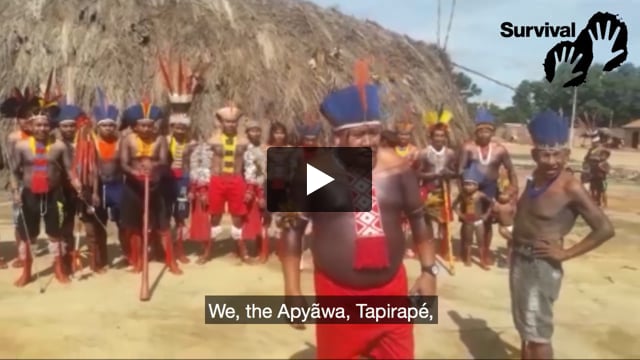Amazon mega dam delayed following protests
December 3, 2009
 © Greenpeace
© GreenpeaceThis page was last updated in 2009 and may contain language which is now outdated.
The go-ahead to build the Belo Monte hydroelectric dam, planned for the Xingu river in the Brazilian Amazon, has been delayed following protests by Indians and objections by local and international organisations.
If constructed, the dam will be the third largest in the world, costing over US$10 billion, bringing more than 200,000 workers into the area and forcing an estimated 20,000 people from their homes.
A large proportion of those displaced will be Indigenous peoples who have been living in the area for centuries. Nine million hectares of rainforest will be affected.
The dam was condemned because it violates human rights and harms the environment, at a hearing on dams organised by the Inter-American Commission on Human Rights last month.
Kayapó Indians together with 14 other tribes participated in a week-long protest in October.
After the protest, Indian representatives delivered a letter to President Lula in which they warned, ‘If the Government decides to go ahead with the construction of Belo Monte, we Indians of the Xingu will commence a war.’
Although FUNAI, Brazil’s Indian Affairs agency, acknowledges the dam will have a negative impact on Indigenous peoples, it has given its go-ahead for the project.
The auction when companies will bid for contracts to build Belo Monte has been delayed owing to problems in acquiring an environmental licence for the project. If the licence is not granted by January, the construction of the dam will be further postponed, possibly until 2014.
On Tuesday, representatives of Indigenous communities and others affected attended a public hearing where the authorities involved in the construction of the dam spoke of its impacts. However, no representatives of the government bodies most closely linked to the project attended. Another hearing was held yesterday, followed by a protest by Indigenous leaders.
The Licensing Director and the Infrastructure and Energy Coordinator of Brazil’s Environment Ministry, key figures in the Belo Monte case, announced their resignation on Tuesday.
For more information about the Belo Monte dam see International Rivers.
Read more about dams affecting other Indigenous peoples around the world.



